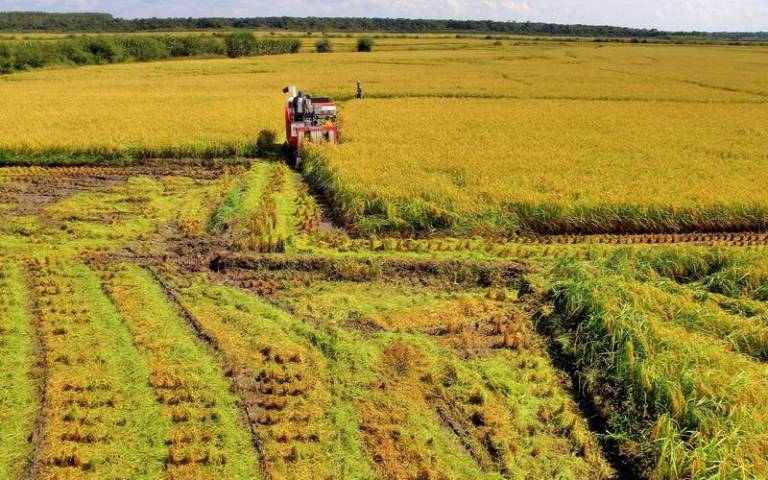FOODIES: Developing an integrated approach to sustainable agriculture
A UCL expert is assessing the many environmental impacts of agriculture around the world in a bid to assess the trade-offs necessary to sustainably provide food for all.

8 October 2020
As the world’s population grows, so does the demand for food. Increasing food production has impacts on water use, fertiliser use and land management decisions, as well as creating trade-offs with greenhouse gas emissions and conservation.
“To provide sufficient food for the world’s expanding population, we need integrated approaches to agriculture that recognise the interconnectedness of its impacts on the climate, water resources, soil and biodiversity,” explains Dr Carole Dalin (UCL Institute for Sustainable Resources).
Through the Developing Integrated Environmental Indicators for Sustainable Global Food Production and Trade Project (FOODIES), Dr Dalin is leading a comprehensive assessment of agricultural practices to help understand the multiple environmental impacts of crop and livestock production in different parts of the world and to quantify the trade-offs associated with different sustainability strategies.
Dr Dalin is also considering the importance of global food trade. There has been a large expansion of export-oriented agriculture in several parts of the world, including the US and India, following the rapid growth of international food trade since the 1980s.
“To provide sufficient food for the world’s expanding population, we need integrated approaches to agriculture that recognise the interconnectedness of its impacts on the climate, water resources, soil and biodiversity.”
Such intensive agricultural practices – in response to year-round demand for goods such as cooking oil and fresh fruit – depend on large quantities of water for irrigation and are leading to a rapid depletion of groundwater aquifers, the Earth’s most precious freshwater stock
Dr Dalin is developing a set of integrated environmental indicators to help measure progress towards sustainable agriculture. This involves a comprehensive assessment of the environmental impacts of proposed pathways to sustainable agriculture and how they link to trade.
“We need to recognise the crucial role of trade in global agricultural systems, as a part of our evaluation of potential ways we could achieve environmentally sustainable agriculture,” she says.
She will identify points of integration across a range of products, both animal and plant-based, and provide quantitative measures of sustainability.
“As part of what has become known as the water–food–energy-climate nexus, we are assessing the environmental sustainability of global food production and trade, to provide evidence that will help support delivery of the Sustainable Development Goals,” adds Dr Dalin.
 Close
Close


